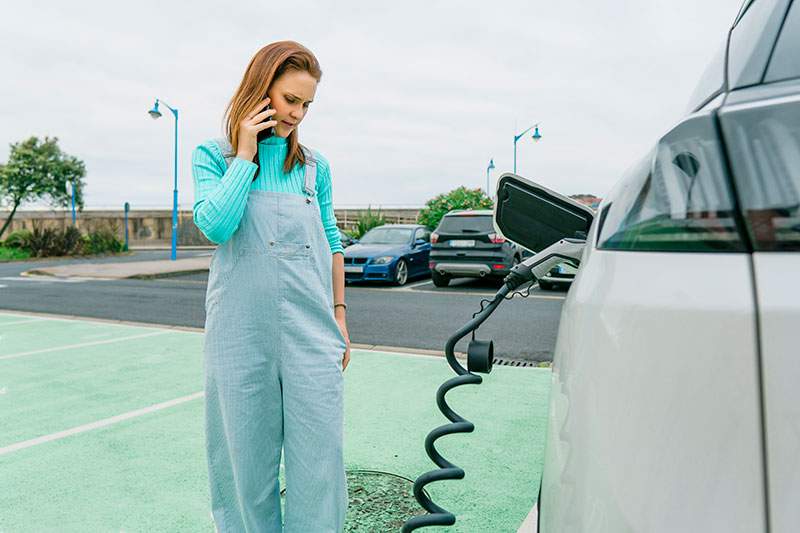When it comes to car accidents, most people tend to focus on the visible, physical damages, like bent fenders and dents to the body. However, crashes and collisions can also cause unseen problems with a vehicle’s electrical systems. Even a seemingly minor accident could create serious electrical issues, like faulty, flickering headlights or damaged wiring.
This guide will take a look at some common electrical issues that often occur after accidents. We’ll also look at steps that owners should take after a crash to diagnose and fix electrical faults.
Flickering Headlights
One of the most common electrical issues you may notice after an accident is when your car’s headlights (or taillights) randomly flicker or even turn themselves off while driving. This is also one of the most worrying electrical issues, as it makes it very dangerous to drive after dark.
Cause: In many cases, lights flicker because they’re not getting sufficient power. That could be caused by battery or alternator damages, or an issue with the wires that connect the lights to the battery.
Difficulty Starting the Engine
Drivers may also discover that their car is slow to start (or won’t even start at all) after an accident. They might have to turn the key several times to get the engine fired up, or they may just hear a simple clicking sound when they try to start their cars.
Cause: If a car won’t start after a crash, it’s likely the starter motor has been damaged. This is a small but significant motor that provides essential power for the ignition process.
Random Power Loss
Another very frustrating and risky issue that may occur after accidents is random power loss to your vehicle. You might be driving along when the engine suddenly cuts out, or find that your car seems to stall randomly and unexpectedly.
Cause: There are several possible explanations for sudden stalls and power loss situations. It may be that the ignition system has been damaged in the collision, for example, or the sign of a dying battery.
Dashboard Warning Lights
It’s very common for owners to suddenly see a whole bunch of dashboard warning lights show up after an accident. These lights are designed to let you know about possible issues with your vehicle, encouraging you to visit a mechanic or dealership to have it looked at.
Cause: If you spot the Check Engine light illuminated or some other warning light, it could be down to issues with the battery, alternator, or various other under-the-hood components.
Failing Fuses
Cars are fitted with a series of fuses that help to protect electrical components and systems against sudden power surges or short circuits. However, drivers sometimes notice that they suffer multiple blown fuses after an accident, which can cause various electrical systems to stop working suddenly.
Cause: Fuses only tend to blow when there’s a risk of a power surge or short circuit. So, if one or more fuses blow after an accident, it’s likely that there’s some sort of issue with the wiring or physical damage to key electrical components.
Unresponsive Electrical Components
Another post-accident electrical problem to keep an eye out for after a crash or collision is when your car’s electrical systems simply stop working. And that includes all electrical components, from the car radio to the power windows or automatic door locks.
Cause: Most of the time, as with a lot of other electrical problems, failing electrical systems are caused by faulty or damaged wiring. It could also be a sign of a dying battery or broken alternator.
Sudden Power Surges and Drops
If the car’s battery or alternator gets damaged in an accident, drivers may experience sudden and unexpected surges and falls in power. You can spot these surges when your headlights suddenly go from very bright to dim, or vice versa, for example.
Cause: As mentioned above, this particular issue usually comes down to a damaged alternator system or something wrong with the battery.
Strange Smells and Sounds
One of the more obvious signs that something is wrong with a car after an accident is if it suddenly starts smelling or sounding strange. Drivers might notice various electrical-related sounds or smells, like a snapping sound or the odor of burning rubber.
Cause: There are so many possible causes for unusual smells and sounds in a car. Possible electrical explanations include a faulty alternator or issues with the ignition coils.
Steps to Take After an Accident
Clearly, there are quite a few things that can go wrong with a car’s electronics after a crash. Some – like the radio turning itself off – aren’t all that serious. But others – like flickering headlights or an engine that won’t start – are much bigger issues and can virtually make it impossible for you to drive anywhere.
That’s why it’s important to take the right steps after a crash to ensure your ride is safe. It’s usually best to visit a local dealership or consult a trusted mechanic to check over your vehicle and run some tests before you drive it anywhere. In addition, even if the car seems fine, owners should drive with caution and keep an eye out for any of the signs listed above – if you spot something, get it fixed.
Look Out for Electrical Issues After Accidents
If you ever find yourself in an accident, remember that dents and dinks aren’t the only things to worry about. You might find, for instance, that your headlights suddenly seem to have a mind of their own or your car’s power levels seem a little unreliable. Such problems can be quite costly to fix, which is why it’s so important to always drive safely and keep your risks of accidents to a minimum.



